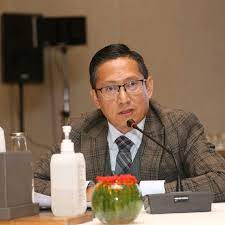Mr. Kushal Gurung
Kushal Gurung, the CEO of Wind Power Nepal Pvt. Ltd., had a vision of generating 100 megawatts of renewable energy in Nepal within a decade. He left a successful career in Scotland to return to Nepal in late 2011 when the country was facing severe power cuts. Witnessing this issue motivated him to contribute to the field of renewable energy, and he chose wind power due to his previous experience in the sector. In 2012, after a year of research and market study, Kushal established Wind Power Nepal (WPN0).

Although the amount helped kickstart the project, it was insufficient for the company’s long-term growth. Initially, wind energy was not well-regarded by many, and WPN faced challenges being a newcomer in the industry.
To sustain the business, Kushal decided to provide offshore consultancy services to a wind research company based in Europe, leveraging his previous work experience. This consultancy venture brought in enough revenue to support WPN’s new project, Bio Urja 100. However, the rooftop wind turbine project faced stiff competition from solar energy, and the high post-sales maintenance costs and logistical challenges forced them to abandon it within six months.
Over the next four years, WPN faced difficulties due to the lack of supportive policies for wind power in Nepal. They engaged in extensive lobbying efforts, publishing numerous articles in daily newspapers, and collaborating with major energy departments and donors, such as the Alternative Energy Promotion Center (AEPC), Ministry of Energy, and Department of Electricity Development. These efforts gradually gained them recognition in the market by 2013.
A turning point for WPN came in 2015 when they won the tender for executing the World Bank’s ‘Nepal Wind Mapping Project (2015-2018),’ which Kushal considers their most significant achievement to date. Running a business has its highs and lows, and Kushal acknowledges the frustration of managing income and expenditure. To mitigate such challenges, he adopts a strategy of keeping the company’s assets as light as possible, producing only when there are confirmed orders.